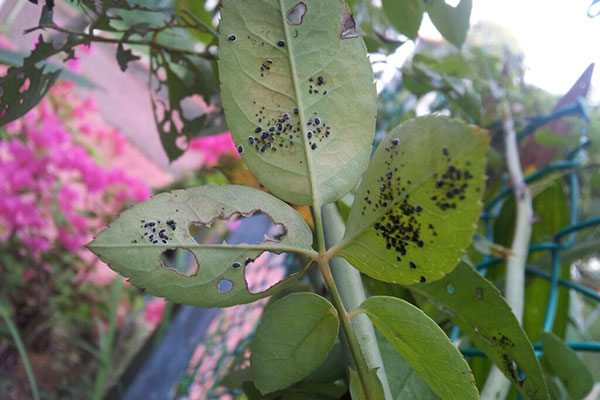Your cart is currently empty!

09 Feb 6 Diseases And Problems That Affect Roses And How To Fix Them
It seems that even with the best prevention techniques and care you provide for your roses, you cannot always stop diseases and problems from affecting your roses. However, although there are many diseases and problems that affect roses, there are also many ways to fix them! All it takes is a little bit of tender loving care, and the right techniques! Here are some of those techniques to help your roses look their best.
1. Aphids And Spider Mites
Aphids are a greenish brown insect that suck the juices from roses which will eventually cause your roses to dry out. To effectively treat them, simply blast your roses with soapy water.
2. Black Spots
Black spots are a fungal disease that causes the canes to turn black or brown in spots on the foliage. To treat this, simply remove the affected areas and throw out the clippings. Do not water the head to prevent this from happening again.
3. Canker
A canker is another fungal disease that causes the canes of roses to turn black or brown. All you need to do is take away the canes just below the canker in the early spring.
4. Midge
A midge is a tiny maggot that causes the rose buds to blacken from the damage. If you want to fix this problem, cut off the affected area, and then destroy it!
5. Rust
Rust is a disease that creates an orange powder in the center of the rose. It is caused by wet and calm winter weather. Putting in some spider mites can help with this because they hate the water! You should consult your local garden center about the best insecticide to use in order to get rid of the spider mites. Once you have chosen the insecticide, spray every 7-10 days until it is under control.
6. Powder Mildew
You can put an end to powder mildew by making a mixture of 1 gallon of water, 2 TBSP of baking soda, 1 TBSP of Murphy’s Oil Soap. Simply, spray this concoction over the roses in the morning every two weeks until the temperature around the roses reaches 80 degrees.
Have you tried all these solutions with no success to having a pest-free rose garden? If you are looking to purchase affordable high-performance neonic-free bio-pesticide products, check out our products here. For more information about planting a rose garden, check out our free e-books here to read about 8 Tips To Help You Choose The Right Rose For Your Garden, 9 Ways To Properly Care For Your Roses, 10 Tips To Help You Plant Roses, and many more!


